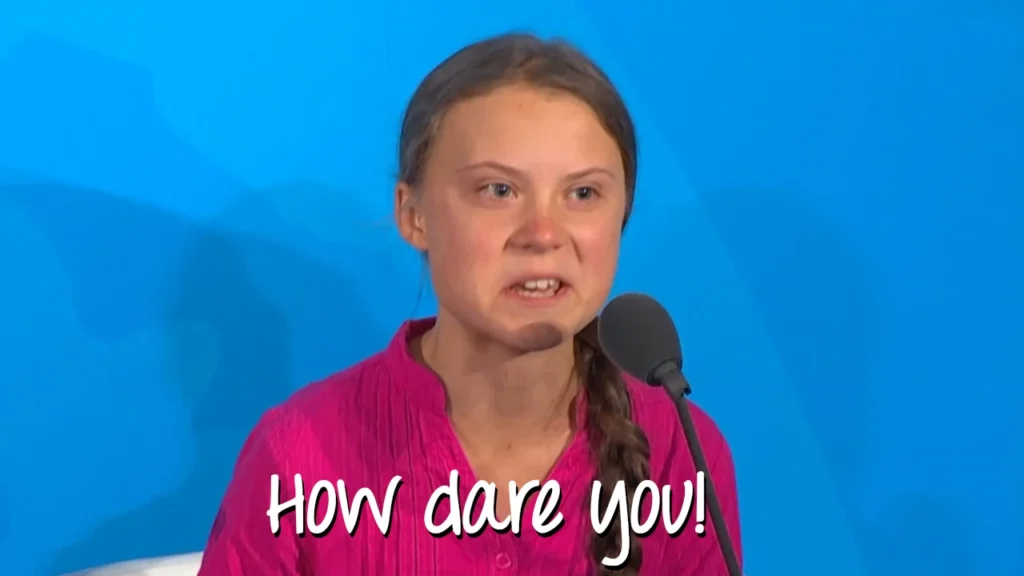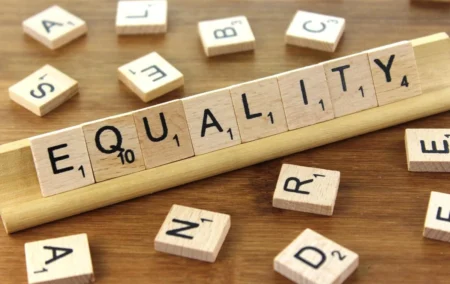Ramaphosa threatened South Africans with “equality, whether people like it or not”. Let’s follow his logic to its conclusion, shall we?
“We cannot, and must not, go on with the new South Africa when we still have inequality in some areas of life,” President Cyril Ramaphosa told an ANC Progressive Business Forum, according to News24, “and healthcare, which is the most important area of life for anyone, is one area where we need equality. And, believe you me, we are going to have equality, whether people like it or not.”
Earlier, at the signing of the National Health Insurance Act, he said: “Achieving equity is what the struggle against apartheid has been all about, and it continues to be about that, that we should have equality. Now we cannot, we cannot have a situation where there is a portion of the South African population that continues to live under unequal, an unequal system, whilst the others continue under a privileged type of system. This is completely against what the ethos of our democracy is. So for those who would like to see those privileges that they’ve continued to enjoy continuing, sorry you are on the wrong boat. The boat that we are on is about equality.”
This bears analysis.
Temerity
The NHI Act makes it illegal for private medical schemes to fund medical care that the NHI Fund will also pay for. It proposes that everyone should rely on the medical care the state pays for, and may not rely upon private alternatives, except to provide care for which the NHI will not pay.
This is what Ramaphosa means by equality.
For a start, the temerity of a multi-billionaire to lecture South Africans about equality is astounding. He has more money and privilege than anyone else in this country, yet he wags his finger at “well-to-do, rich people”? Has the man no shame? How dare he!

But I digress. For a highly entertaining and on-point rant on Ramaphosa’s temerity, see Sara Gon’s piece, J’accuse, Mr President!
“Unequal system”
Ramaphosa’s logic on the NHI is that it is “an unequal system” when the government employs tax revenue to provide a free or low-cost service, but some taxpayers choose to use their after-tax incomes to buy a similar service of higher quality from private providers.
By that logic, the ANC government should prohibit people from hiring private security, and force them to rely on the government’s offer of free security for all.
The reality is that the inadequacy of the government’s provision of security has forced those who can afford it to turn to private security to protect them, their families, their properties and their businesses from crime.
At considerable expense, private security takes a lot of pressure off the police, thereby improving services to both rich and poor.
Preventing people from using their private, after-tax income to supplement a service that the state also provides is wrong. Seeking to somehow expropriate that income to prop up the state’s inadequate service is also wrong.
In Ramaphosa’s mind, however, the reliance on private alternatives to government services that someone has already paid tax for is an unconscionable expression of inequality, is against “the ethos of our democracy”, and betrays the struggle against apartheid.
Follow the logic
If we follow Ramaphosa’s logic, we should outlaw private schools, and require every child to attend a government school. I’ll bet virtually every child of senior ANC officials and members of Parliament goes to private schools, but we can’t have such inequality, says Cyril.
We must also end the inequality of transport. It is not right that some people have to walk or take taxis, while others have their own cars. We must force everyone onto public transport, or there is no equality.
Then we have to nationalise domestic and garden services, because it is unfair that some people are so privileged they can afford to hire help, while others are condemned to clean their own homes and tidy their own gardens.
We must also ban private homeownership, and require everyone to live in RDP houses, because it is against the ethos of our democracy to have many people live in small houses, while the privileged few (like Ramaphosa) get to live in mansions.
And we must ban solar panels and boreholes, because the government will provide everyone with equal access to water and electricity. Oh, wait…
Soviet theory
Now you might argue that I’m being absurd, and that this is obviously not what Ramaphosa really wants. But you’d be wrong.
In every Strategy and Tactics document (e.g. this one from 2023), the ANC recommits itself to the National Democratic Revolution (NDR).
The NDR is a Soviet theory of liberation that involves, first, a democratic revolution (with which classical liberals gladly go along), followed by the gradual implementation of socialism, as the “transitional social system between capitalism…and [the] fully classless, communist society” (with which classical liberals strongly disagree).
For a detailed exposition of the NDR, its origins and its character, see this explanation by the IRR’s Anthea Jeffery, and this paper by Irina Filatova in the South African Historical Journal.
To put it plainly, the ANC’s ultimate objective is not the unequal distribution of rising prosperity, but the equal distribution of whatever prosperity there happens to be. This is what Ramaphosa calls “the ethos of our democracy”.
Of course, the entitled elite that administers the socialist system while we wait for the stateless communism that never comes is excluded from the demand for equality, which is why Ramaphosa can hypocritically spew equality rhetoric from atop the eight billion smackeroos in his sofa.
Different meanings
You may have noticed that Ramaphosa drew no distinction between “equity” and “equality”, and used the terms interchangeably.
In reality, they have different meanings. Equality itself has two different meanings.
In the socialist worldview of Ramaphosa’s outlook, equality refers to equality of material conditions, achieved by coercive redistribution of wealth. Wealth, in this ideology, is something to be shared, not something to be created.
That sharing wealth leads to wealth destruction, because it takes that wealth out of the hands of those who create it and use it productively and gives it to those who merely spend it, is incomprehensible to socialists.
They think they can redistribute wealth from the rich to the poor without any consequences.
Free economies
In free-market ideology, by contrast, equality refers to the equal rights of everyone before the law. Everyone should have the right to their own life, and consequently to the property that they create or lawfully acquire, and to the liberty to use or dispose of their property howsoever they wish, provided that the exercise of these rights does not infringe on the same rights of others.
Socialists believe that they have stumbled upon a better way of distributing wealth than a free-market capitalist system does. Intuitively, their claims are appealing. After all, wealth is unequally distributed in a capitalist system, and that does seem unfair. It certainly makes one jealous.
But the data shows that they’re wrong. In countries with free economies (capitalist countries, as opposed to countries with heavily state-controlled or socialist economies), not only is the average prosperity higher, but the absolute prosperity of the poor in those societies is much higher than in countries with less free economies.
So, despite inequality, the poor are better off in free-market capitalist societies than in socialist societies.
Equity
Equity is a term that means something else entirely. It observes that the equal rights and equal opportunities of a free market often depend on factors that are beyond the control of individuals. It refers to fairness and justice in how people gain access to opportunities. It recognises that different people or groups may require different support or accommodations, and that historical or systemic disadvantages may require redress in order to achieve equality of opportunity.
There is much to be said for achieving at least some measure of equity. Most liberal democracies that are largely based on free-market principles also recognise the need for social welfare systems, universal access to healthcare, universal access to education, and special assistance for people from poor, dysfunctional or historically disadvantaged communities.
Provided that these interventions do not kill the goose that lays the golden eggs – which is free-market capitalism – they can indeed improve the well-being and prosperity of society as a whole.
1960s-era ideology
But that isn’t what Ramaphosa means when he talks about equality.
His strategy, and that of the ANC, really is to achieve, first, socialism, in which the state owns or controls most of the means of production and provides equal services to all, and ultimately communism, in which everyone is materially equal.
Despite the catastrophic failure of socialism on the world stage, and the abundant evidence that they’re simply wrong, he and the ANC cling to an outdated and disproved 1960s-era ideology that has never brought prosperity to all, and will not bring prosperity to all this time around either.
This is also why material equality must be brought about by the coercive power of the state. There is no way to achieve material equality without the use of force.
When Ramaphosa threatened, “believe you me, we are going to have equality, whether people like it or not,” he said the quiet part out loud.
His party intends to use force to impose material equality upon South Africans and redistribute existing wealth, even if it destroys the ability of the economy to generate new wealth. He believes this to be a righteous mission.
Righteous missions are how many a brutal socialist dictatorship began.
(My thanks to @barry_dp, @BlueNip, @E_111_M and @vegan_plath for helping to write part of this column.)
[Image: “Equality” spelt out using wooden tiles. Image by Nick Youngson for Alpha Stock Images, licenced under Creative Commons CC BY-SA 3.0.
The views of the writer are not necessarily the views of the Daily Friend or the IRR.
If you like what you have just read, support the Daily Friend

